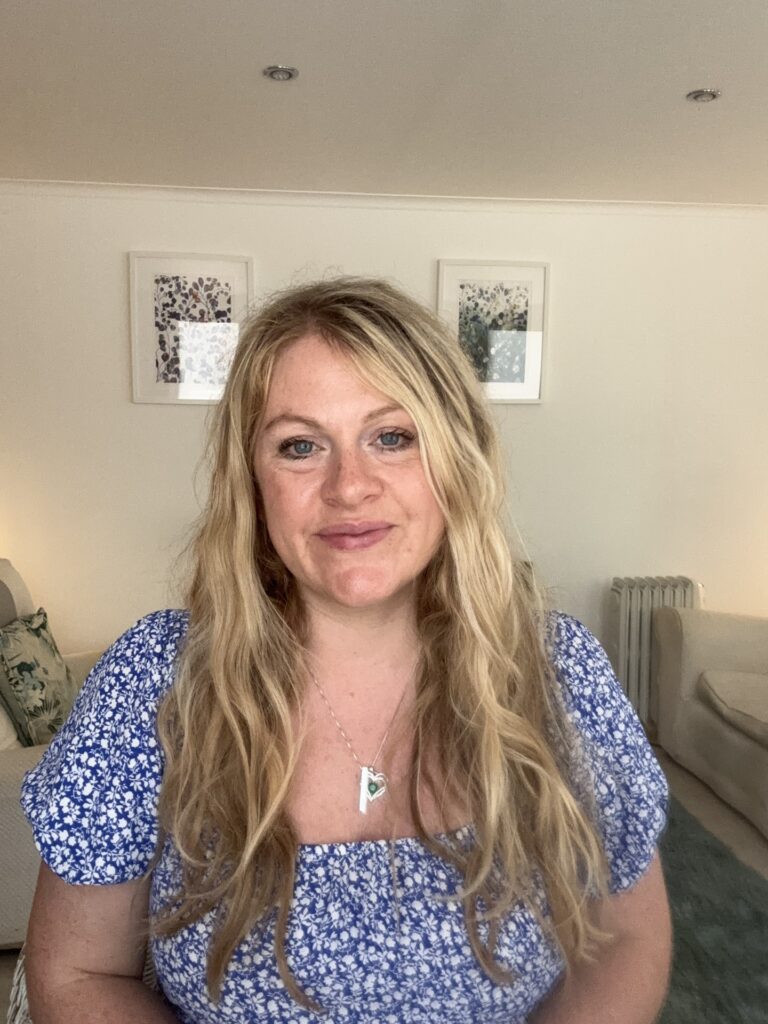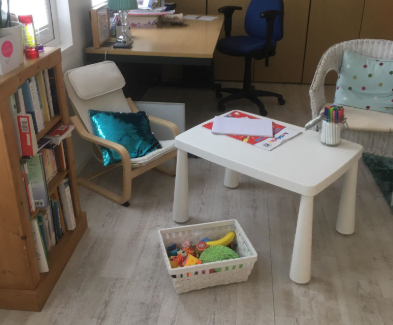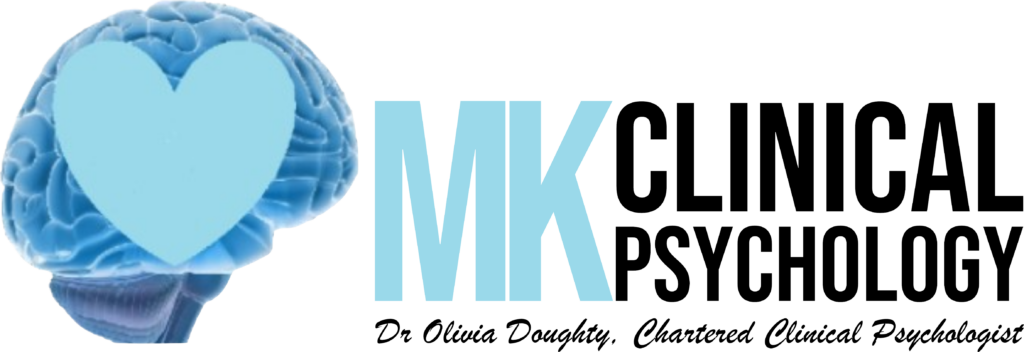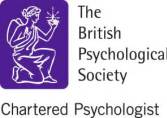
Assessments
Understanding why we feel, think and behave as we do.

Adults
Moving towards the life you want to live.

Systemic Group Therapy
Therapy for families and couples working together.

Child Therapy
Helping children understand and manage difficult emotions
Clinical psychologist profile
Dr Olivia Doughty
I am a Chartered Clinical Psychologist with extensive qualifications and clinical experience, including:
✅ First-class BSc (Hons) in Psychology
✅ PhD in Neuropsychology
✅ Doctorate in Clinical Psychology
✅ Specialist training in CBT, DBT, ACT, Attachment Focused Therapy, CFT, EMDR, and Systemic Family Therapy
✅ Extensive experience working with adults and children who present with neurodevelopmental conditions, such as ADHD, ASD and dyslexia.
I have worked within the NHS, social care, and private practice since 2008, helping individuals across child and adolescent mental health services (CAMHS), adult community mental health, learning disabilities, and social care settings.
After qualifying, I worked within specialist social care and looked after children settings with a particular focus on supporting adolescents.
Since 2012, I have been working privately, supporting adults, young people, and families to improve their mental health and overall well-being. I have developed a wealth of experience in a range of approaches and presentations and often support people who have experienced trauma.
–

What is a Clinical Psychologist?
A Clinical Psychologist is a highly trained mental health professional who helps individuals who are experiencing emotional, behavioural, and psychological difficulties, using evidence-based therapeutic approaches. They typically work within the NHS, private practices, and other healthcare settings, supporting children, teenagers, adults, couples, families, and professionals.
Many people seek the help of a Clinical Psychologist when facing stress, anxiety, depression, trauma, relationship issues, or concerns about their child’s development and well-being.
What Does a Clinical Psychologist Do?
Clinical Psychologists specialize in four key areas:
1. Psychological Assessment
The word “assessment” can have negative associations. The standard process is to meet together for an informal assessment where we develop a shared understanding (formulation) of any difficulties and identify potential causes and maintaining processes. This can help us both to understand the situation better and make it easier to work out how therapy could be helpful and what therapeutic models would work best. One session is usually enough for this informal assessment.
Formal Assessment
Sometimes it is helpful to have a more formal assessment perhaps where people wish to know whether they meet diagnostic criteria for a specific mental health difficulty or to help better identify a child’s needs so that families can inform school and other agencies.
This may involve more than one session, perhaps meeting different people (always with consent) and also may involve the use of psychometric measures such as questionnaires or diagnostic interviews.
Following the assessment, the Clinical Psychologist may provide a detailed report, which can be shared with the client, GP, or relevant professionals (with consent). The report usually details the conclusions and what could be helpful moving forwards. There is an extra charge involved for reports.
2. Psychological Formulation
All therapeutic work is based around a psychological formulation which is individual to the person but informed by psychological theory and models.
A psychological formulation helps explain the underlying causes of emotional and behavioural challenges. It considers:
- Predisposing factors (past experiences that shaped the current situation)
- Precipitating factors (recent triggers or stressors)
- Perpetuating factors (ongoing issues that worsen the situation)
- Protective factors (strengths and coping strategies that help improve well-being)
This formulation is a collaborative process, drawing always on a client’s own expertise of their lived experiences.
3. Therapy and Psychological Interventions
Evidence-based therapies are tailored to help individuals and families develop self-awareness, improve mental well-being, develop helpful coping strategies and techniques and make lasting changes. These may include:
- Cognitive Behavioural Therapy (CBT) – effective for anxiety, depression, and trauma
- Dialectical Behaviour Therapy (DBT) – helpful for emotional regulation and self-destructive behaviours
- Acceptance and Commitment Therapy (ACT) – incorporates mindfulness, promoting helpful ways of managing intrusive thoughts
- Eye Movement Desensitization and Reprocessing (EMDR) – a specialized treatment for trauma and PTSD
- Compassion Focused Therapy (CFT) – targeting self-critical thinking, this model helps develop self-compassion
- Attachment based therapies – useful for adults and children with attachment difficulties
- Systemic Family Therapy – focuses on improving relationships within couples and families
As psychological therapy is based on individual formulations, often therapy is integrative and incorporates theory and techniques from a range of evidence-based models.
Therapy sessions typically last 50 minutes and can be conducted in-person or online.
Whilst therapy may involve discussing difficult emotions and past experiences, research shows that professional psychological support leads to significant improvements in mental health. The clinical psychologist will always be respectful of a client’s emotional capacity, preferred pace and preferences for what will be discussed during sessions.
4. Consultation and Professional Support
Clinical Psychologists also provide expert consultation for:
- Parents and caregivers seeking guidance on managing their child’s behaviour
- Schools and workplaces needing mental health support strategies
- Social workers and healthcare teams supporting vulnerable individuals
Confidentiality and Ethics in Clinical Psychology
All sessions are strictly confidential. However, if there are safeguarding concerns, the Clinical Psychologist has a duty to share relevant information with appropriate authorities in a sensitive way, with the needs and wishes of the person at the forefront of the process—this is always discussed during the initial session.
Therapy & Psychological Support for Adults
Navigating Life’s Challenges
Life can be beautiful, fulfilling, and exciting, but it can also be painful, lonely, devastating, overwhelming, and incredibly difficult.
We all start life with different temperaments and genes which can make certain aspects of life harder and some of us are more vulnerable to developing physical health difficulties, neurodevelopmental conditions (such as ADHD or Autism) or certain mental health difficulties.
Furthermore, we don’t all experience the same opportunities in childhood and we know that our early experiences strongly influence our emotional well being and mental health throughout our lifespan.
Sadly, some children experience abuse, trauma, neglect or loss during their childhood or experience feelings of rejection, criticism or hostility growing up. It is also sadly common for people to experience trauma or abuse in their adult life which profoundly affects their emotional wellbeing.
How Common Are Mental Health Challenges?
According to the World Health Organization (WHO), 1 in 4 people will experience mental health difficulties at some point in their lives. These difficulties can lead to significant distress and can affect:
✔ Emotional well-being – Feelings of sadness, anxiety, or hopelessness
✔ Relationships – Struggles with intimacy, communication, or attachment
✔ Work & daily life – Lack of motivation, stress, or burnout
✔ Physical health – The mind-body connection and its impact on overall health
Clinical research, including NICE guidelines, supports therapy as an effective way to reduce distress, improve mental health symptoms, and increase overall quality of life.
Psychological Therapy & Support for Adults
Clinical Psychologists offer comprehensive psychological assessments and integrative therapy to help adults manage a range of emotional and mental health difficulties.
Clinical Psychologists are experienced in a wide range of difficulties including:
🟢 Depression & low mood
🟢 Bereavement & grief support
🟢 Anxiety disorders (health anxiety, social anxiety, phobias)
🟢 Panic disorder & agoraphobia
🟢 Obsessive-Compulsive Disorder (OCD)
🟢 Unresolved childhood difficulties (including Complex PTSD)
🟢 Post-Traumatic Stress Disorder (PTSD)
🟢 Relationship difficulties (attachment issues, trust, communication)
🟢 Personality-related emotional difficulties
🟢 Anger management & emotional regulation
🟢 Unusual experiences and perceptions (psychosis)
🟢 Low self-esteem, self-doubt & imposter syndrome
🟢 Neurodevelopmental conditions such as ADHD and ASD
🟢 Mood difficulties such as Bipolar 1 and 2
Systemic Therapy: Understanding Relationships & Change
No person is an island and we are strongly influenced by the systems around us, usually our families, friendships and work places and we in turn influence others. Whilst individual therapy can be very helpful, it is often also useful to work with families together so that they can learn ways to understand each other, communicate in a more helpful way and develop more positive interactions.
Often when younger children are involved, it makes sense to work solely with parents to help develop a shared understanding of a child’s behaviour, develop therapeutic behavioural management strategies and techniques to strengthen family attachments and increase a child’s wellbeing indirectly.
With older children or teens, working with parents or siblings together can ensure that therapeutic progress continues past the sessions and is taken into the home. It is often helpful to have a mixture of individual sessions with some review sessions as a family, bearing in mind the need to preserve the confidentiality of the young person.
Systemic Therapy is a therapeutic approach that focuses on relationships, helping individuals, couples, and families navigate challenges together. It recognises that our thoughts, feelings, and behaviours are deeply influenced by our family systems, social environments, and life experiences.
How Does Systemic Therapy Work?
📍 Focus: Understanding relationships, patterns, and communication
🕒 Who It’s For: Individuals, couples, families, and groups
Rather than focusing solely on one person, systemic therapy looks at the bigger picture—how relationships, interactions, and past experiences shape the present. It’s not about assigning blame but about exploring how difficulties develop, how they are maintained and how they can be transformed.
During therapy, we will:
✔ Identify relationship patterns that may be causing distress
✔ Explore how past experiences influence present challenges
✔ Develop healthier communication and problem-solving skills
✔ Strengthen emotional connections between family members or partners
✔ Foster understanding and compassion within relationships
Systemic therapy is not about ‘fixing’ one person—it’s about creating meaningful change for everyone involved.
Who Can Benefit from Systemic Therapy?
This approach is particularly helpful for:
👨👩👧 Families facing conflicts, misunderstandings, or major life changes
💑 Couples struggling with communication, trust, or intimacy issues
🧒 Children and adolescents experiencing emotional or behavioural difficulties
🤝 Groups or individuals wanting to improve relationships and connections
Systemic therapy is often used for issues such as anxiety, depression, trauma, parenting difficulties, and family breakdowns. By working together, families and couples can find new ways to support each other and navigate life’s challenges.
What to Expect in a Systemic Therapy Session
Therapy is a collaborative process, tailored to your unique situation. Depending on your needs, sessions may involve:
🔹 One-to-one discussions to explore personal perspectives
🔹 Couple or family sessions to improve communication and understanding
🔹 Reflective exercises to identify patterns and new ways of relating
Everyone’s voice is valued, and the aim is to create a safe, supportive space where real change can happen.
These sessions can be longer than a standard session and are often charged at a higher rate to reflect this.
Emotional and Behavioral Difficulties in Children and Adolescents
Childhood is often seen as a time of innocence and joy, but for many children, emotional and mental health difficulties can create significant distress. Research shows that 1 in 10 children and young people experience mental health challenges, impacting their family relationships, school performance, and social interactions.
Worryingly, while some childhood difficulties improve with time, studies indicate that 50-75% of adult mental health disorders begin in childhood (Dunedin Study). Early support and intervention can make a huge difference in a child’s long-term well-being.
Recognizing Emotional Distress in Young Children
Whilst adults often (but not always) have a greater capacity to understand and express their feelings, children often struggle to express their emotions verbally. Instead, they may show distress in different ways:
Externalised Behaviours (Outward Reactions)
- Defiance, aggression, or disruptive behaviour
- Bullying
- Withdrawal
- Frequent tantrums and frustration
Internalised Behaviours (Inward Struggles)
- Sadness, anxiety, or low self-esteem
- Difficulties sleeping or concentrating in school
- Emotional outbursts
- Excessive worry
How a Psychological Assessment Can Help
A comprehensive assessment helps parents and children understand a child’s emotional and behavioural presentation and provides recommendations for support, such as:
✅ Parent Support – emotional support for parents who are caring for children with challenging behaviours can have a huge impact upon a child’s wellbeing. Parenting is incredibly difficult at times and we all have emotional triggers and can become overwhelmed.
✅ Parental Guidance – Learning practical techniques to understand and manage behaviour, improve relationships, and reduce emotional distress at home.
✅ Further assessment/ signposting – a child’s presentation may be due to neurodiversity and they could benefit from specialist assessment or support.
✅ School Collaboration – Working with teachers and school staff (via parents) to develop strategies that support the child’s well-being in both home and school settings.
✅ Child-Focused Therapy – Individual therapy (tailored to the child’s age and communication style) to help them explore and manage thoughts, emotions, and behaviours.
Understanding Behavioural Difficulties in Young Children
Behavioural challenges are often linked to emotional distress, but in some cases, they may indicate developmental conditions such as:
- Attention Deficit Hyperactivity Disorder (ADHD)
- Oppositional Defiant Disorder (ODD)
- Autism Spectrum Disorder (ASD)
Children with neurodevelopmental conditions often experience:
– Managing emotions and impulses
– Following instructions and staying focused
– Forming and maintaining friendships
– Low self-esteem or emotional difficulties
Developmental Assessments & Support
Best practice dictates that diagnosing developmental difficulties follows a comprehensive assessment as part of a multi-disciplinary team, a developmental screening assessment can help signpost and refer for further specialist assessment. In general, understanding more about neurodevelopmental conditions can:
✔ Help parents become more aware of what a child is finding difficult and why
✔ Manage expectations around behaviour
✔ Adapt home and school environments to better support their needs
✔ Develop adapted behaviour management strategies that reduce stress for both the child and parents
✔ Reduce potential negative consequences on self-esteem for a child whose behaviour is misunderstood by others.
In general, early intervention improves long-term outcomes and helps prevent additional emotional difficulties from developing.
Emotional Difficulties in Adolescents
Teenage years are becoming increasingly challenging, with academic pressures, social media influence, and peer relationships impacting mental well-being. Hormonal and brain development changes together with the inevitable stresses in relationships with parents and peers during this time means that adolescents are particularly vulnerable to:
- Depression and low mood
- Anxiety and worry
- Anger, frustration, and aggression
- Self-harm and suicidal thoughts
- Relationship difficulties
- Low self-esteem and body image concerns
- Risky behaviours, substance misuse, and unhealthy relationships
How Therapy Can Help Teens
Adolescence is a time of identity discovery, emotional growth, and increased independence. Therapy provides a safe, non-judgmental space to explore their thoughts, feelings, and behaviours, helping teens to:
✔ Build self-awareness and an understanding of emotions
✔ Develop healthy emotional regulation techniques
✔ Strengthen relationships with family and peers
In many cases, involving parents in therapy sessions can be hugely beneficial, ensuring the right support and communication strategies are in place at home.

What to expect
Taking the first step toward therapy or psychological support can feel overwhelming, but an initial appointment is a great way to explore how therapy could be helpful for you, your child, or your family.
What Happens in the First Therapy Session?
🕒 Duration: 50 minutes
📍 Format: Informal assessment & collaborative discussion
The initial session is designed to help us understand your concerns and goals. During this time, we can:
✔ Discuss your current difficulties (or those of your child/family)
✔ Explore past experiences that may be contributing to distress
✔ Identify future goals – what you’d like to change or improve
✔ Develop a psychological formulation (a structured explanation of emotional and behavioural patterns)
✔ Consider whether symptoms align with conditions like anxiety, depression, or trauma-related difficulties
✔ Use structured questionnaires (if relevant) to gather additional insights
The goal is to work collaboratively, so you feel heard and supported from the very beginning.
Therapy for Children & Adolescents
For children and young people, the first session focuses on engagement, comfort, and building trust. To ensure the most effective approach:
👨👩👦 Parents may have the first session alone to discuss concerns openly
📞 Brief phone calls or written summaries before the session are welcome
👫 Young children may benefit from having a parent present throughout
🧑🎓 Teenagers often attend part of the session alone, but this is flexible
Who Can Attend the Session?
🔹 Adults – You can attend alone or bring a supportive person
🔹 Children (Younger) – A parent/guardian should be present
🔹 Teens & Adolescents – Parents may join at the beginning and end, with solo time in between (if the young person is comfortable)
Our priority is making sure you or your child feel comfortable, relaxed, and supported throughout the process.
Fees
The initial session is charged at the standard rate, with no obligation for further sessions.
Specialist assessments (e.g., diagnostic evaluations) can be arranged, typically requiring two sessions.
Psychological reports can be provided upon request for an additional fee.
No Couch Required – Just a Comfortable Chair!

Address
33 Cross End Wavendon Milton Keynes MK17 8AQ
Phone No
07814 963981
Business Hours
Weekdays - 10AM to 5PM
Weekends- CLOSED
If you’re looking for professional support to navigate life’s challenges, I’m here to help. As a qualified clinical psychologist, I provide a safe, confidential, and compassionate space where we can work together to understand your concerns and find a way forward. Whether you’re seeking therapy for yourself, your child, or a loved one, I’m happy to discuss how I can support you. Feel free to get in touch by clicking the button below—I look forward to hearing from you.








